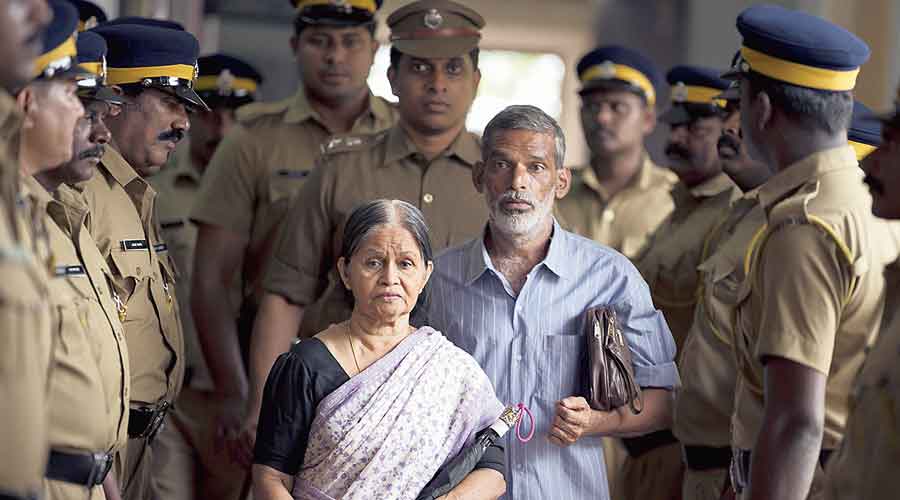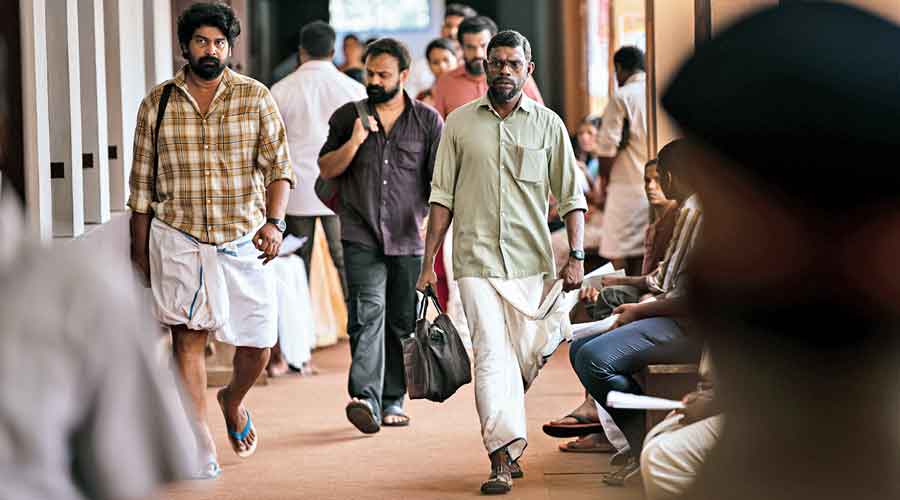A quarter century has passed since four tribal rights activists in Kerala held then Palakkad district collector W.R. Reddy hostage in his office using a toy pistol, crackers and a few bundles of thread.
Ajayan Mannur, Vilayodi Sivankutty, Kallara Babu and Kanhangad Ramesan kept the state administration and police on their toes for about 10 hours using the fake bombs and toy gun.
The siege of October 4, 1996, ended only after the state government agreed to consider the captors' demand to restore alienated tribal land.
The hostage drama was carried out under the banner of a little-known outfit, the Ayyankali Pada, which claims to have inherited the legacy of the iconic Dalit leader Ayyankali.
Although the captors were given safe passage, facilitated by a set of mediators including then district judge K. Rajappan Achary, the incident led to a massive manhunt and a high-profile investigation. Those arrested on the charge of conspiring against the state included not only the four hostage takers but several others who shared their convictions about tribal land rights.
Trial courts acquitted all the four hostage takers since the prosecution witnesses, including Reddy who now leads a retired life in Hyderabad, failed to identify any of them. Those accused of conspiring with the quartet were also acquitted for lack of evidence.
However, the government conveniently forgot the promise to restore the tribal plots, and tribal land alienation continues to be a contentious issue in Kerala. The 1996 incident too has gradually faded from public memory.

Stills from the film Pada. The Telegraph
Now the issue is set to return to the public discourse with a Malayalam feature film, Pada, that closely examines the Palakkad incident and its aftermath, set for release on March 10.
Journalist turned filmmaker K.M. Kamal has directed the film, which features some of the best acting talent in south India such as Prakash Raj, Kunjakko Boban, Dileesh Pothan, Indrans, Salim Kumar, Vinayakan, Joju George, Sudheer Karamana, Kani Kusruthi and Unnimaya Prasad.
“I was a journalism diploma student at the Kerala Press Academy when the Palakkad incident occurred. It stayed in my memory as Kerala continued to fail its Dalits and tribal people despite the state's so-called progressive moorings,” Kamal said.
“In the last five years, I travelled extensively to interact with the captors (four tribal rights activists) and the then collector, district judge and then chief secretary, and all those directly or indirectly involved with the incident.”
Kamal said the Palakkad hostage takers had told him they were prepared to go to jail and were therefore not carrying any money - apart from the 35 paise one of them had in his pocket. After releasing the collector, they had to plead with advocate Veerachandra Menon, one of the mediators, for a lift in his car to the nearby town of Thrissur.
This is the second feature film by Kamal, who made the critically acclaimed Hindi film ID in 2012 and has done several short films on marginalised communities.
“I have attempted to educate society on tribal land rights using the medium of the big-budget mainstream film,” he said.
Kamal said the four activists had staged the hostage drama with the help of former Naxalite leader M.N. Ravunni to draw the public’s attention to the sufferings of the tribal communities.
However, the tribal situation in Kerala worsened further in later years. The government used the police to brutally crush a land struggle in Muthanga, Wayanad district. A mentally challenged tribal youth was accused of theft and beaten to death by a group of influential settlers in Attappady, Kerala’s poverty-stricken tribal heartland that regularly witnesses malnutrition-related deaths.
“Across India, tribal people suffer discrimination from the government, the elite and the powerful,” Kamal said.
Ajayan, one of the captors, rued the worsening of the tribal communities' situation in Kerala.
“It’s no longer on the agenda of mainstream political parties. So we are happy that a feature film on the subject is putting a renewed focus on the matter,” he told The Telegraph.
“For us, the hostage drama was a powerful tool to expose the then government's insensitivity to tribal people. (We showed that) toy guns and fake bombs can halt the functioning of a government for at least 10 hours.”
Ajayan and his friends who had entered Reddy's chamber posing as visitors had kept the police at bay by claiming they were armed. They ordered Reddy to ring up then chief secretary C.P. Nair in Thiruvananthapuram and convey their demand for the withdrawal of an amendment bill on tribal land restoration, which according to them was depriving tribal families of their land.
“In 1996, E.K. Nayanar's Left Democratic Front government amended the Kerala Scheduled Tribes (Restriction on Transfer of Lands and Restoration of Alienated Lands) Act. Ayyankali Pada felt that the amendments violated the rights of tribal people on their land,” Kamal said.
“The method they used did not conform to the law of the land, but the present tribal situation in Kerala proves they were compelled to do so.”
Kamal said the then chief secretary who negotiated through mediators to free the collector deserves appreciation for avoiding bloodshed and police brutality, at least for the time being.
The subsequent operation to flush out the four activists was led by an IPS officer who later became the state director-general of police.
Kamal said he had travelled to Hyderabad to meet Reddy, who still recalls that day with a shudder.
“Reddy's wife recalled a message from the captors that her husband would be murdered if their demands were not met,” Kamal said.
He said Reddy, a retired IAS officer, had told him he had faced allegations of colluding with the captors to save his life.
“Apart from the land question, the film focuses on the issue of the sensitivity of those in power and how they use it,” Kamal said.
The film, shot in and around Thrissur and Palakkad, has a cast of 1,500-plus. It was completed in four schedules across 50 days.
“The then director-general of police asked what I was trying to convey through the film. I replied that the story conveyed the message of elusive justice,” Kamal said.











